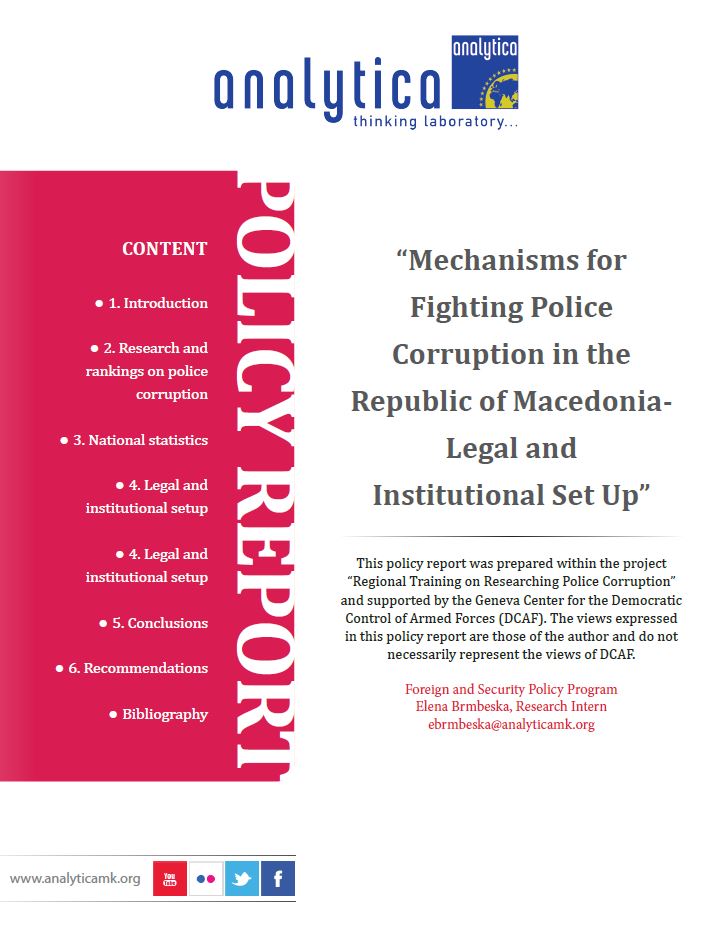Mechanisms for Fighting Police Corruption in the Republic of Macedonia – Legal and Institutional Set Up
Mechanisms for Fighting Police Corruption in the Republic of Macedonia – Legal and Institutional Set Up
Author(s): Elena Brmbeska
Subject(s): Criminal Law, Governance, Security and defense, EU-Approach / EU-Accession / EU-Development, Corruption - Transparency - Anti-Corruption
Published by: Аналитика Тинк-тенк Организација
Keywords: North Macedonia; public institutions; police corruption; anti-corruption policy; high-level corruption; negative social effects; security; defense; legal framework; organised criminal groups; transparency; internal control; professional standards;
Summary/Abstract: One of the biggest obstacles in the proper functioning of democracy is ignorance of the rule of law by institutions meant to enforce it. The presence of corruption in public institutions causes multiple fractions in the country, while some officials obligated to serve the public well-being (inspired by various motives), choose to neglect the values of their service. Step by step, the coordinated work of the institutions that the system requires is disabled and the basic principles of democracy are impaired. Consequently, it is almost impossible to promote and protect human rights and freedoms in an environment where basic moral principles are neglected. Needless to say, corruption is an occurrence that systematically destroys the country from the inside. This is one of the leading problems in our country which prevents any kind of prosperity. Facing the challenges of the transition period, on a struggling path to full membership to the European Union, Macedonia has to put in significant effort in order to fulfill certain criteria. The demand to establish stability in the political, economic and social system is especially difficult when dealing with high level of corruption in the country. The disruptive nature of this phenomenon appears in every segment of the state apparatus. The abuse of official power and authority, in order to gain personal benefit seems to have taken a sway on every level of hierarchy in the public administration. Given the complexity and chain-structure of criminal organized groups involved in corruption, it takes a number of well established and coordinated mechanisms to tackle it. According to the experts, a successful combination would be one of suitable and fully implemented legislative on one side, and democratic institutions working in compliance with it, which will put theory into practice on the other.
Series: ANALYTICA - Policy Reports
- Page Count: 20
- Publication Year: 2013
- Language: English
- Content File-PDF

